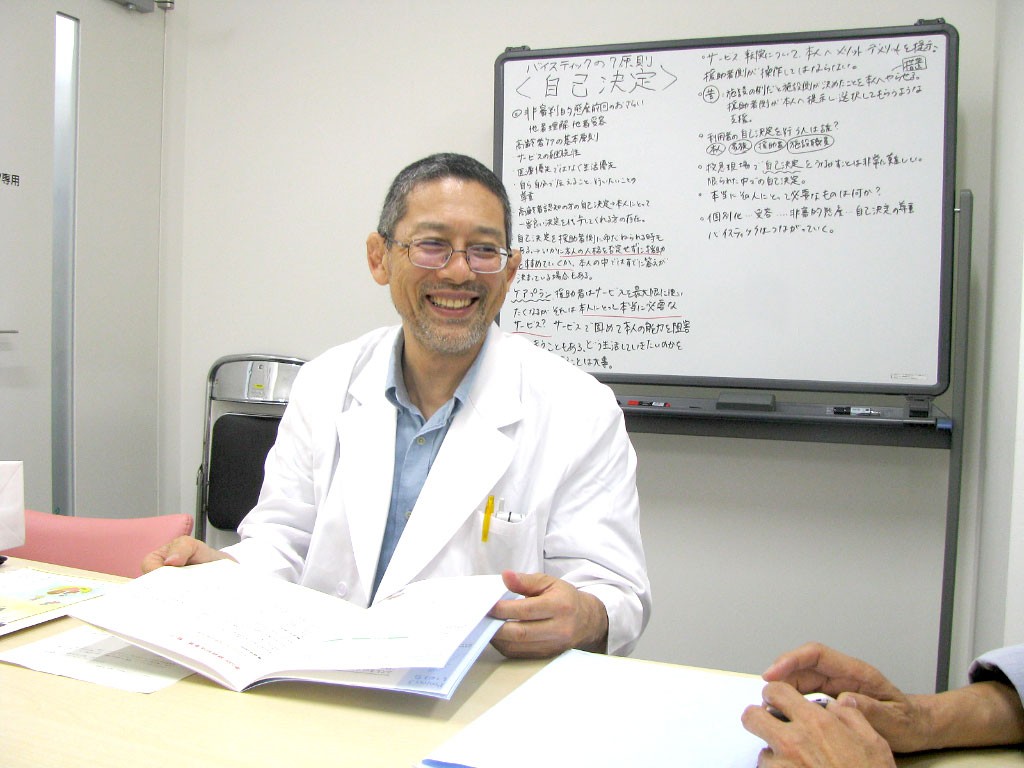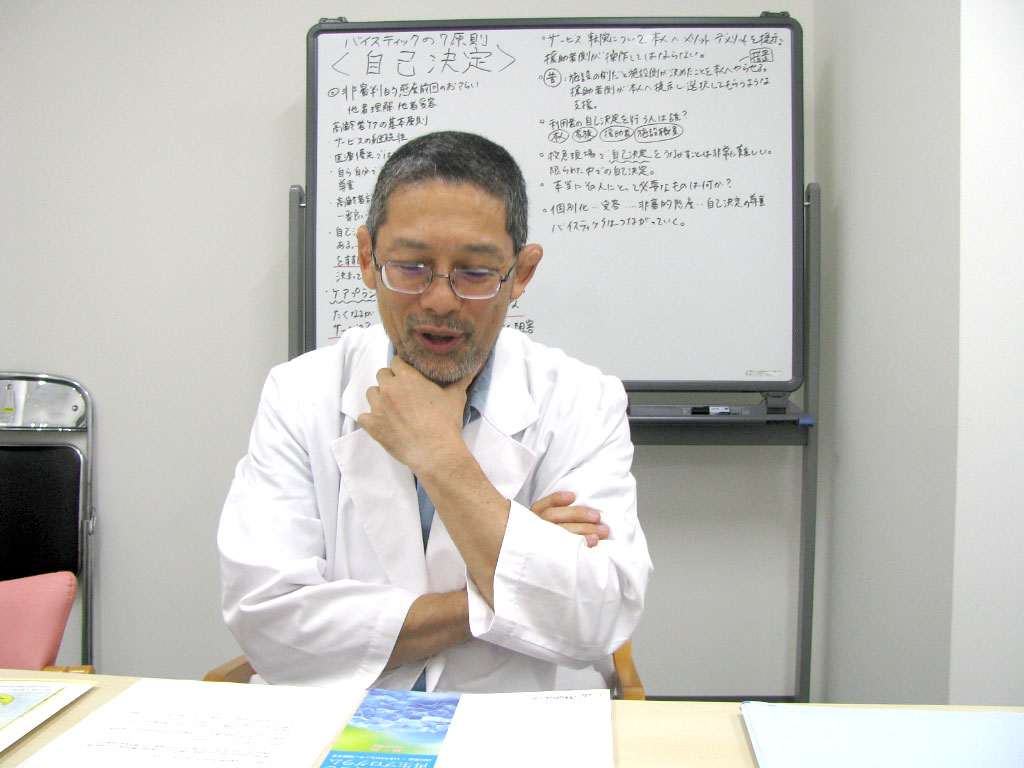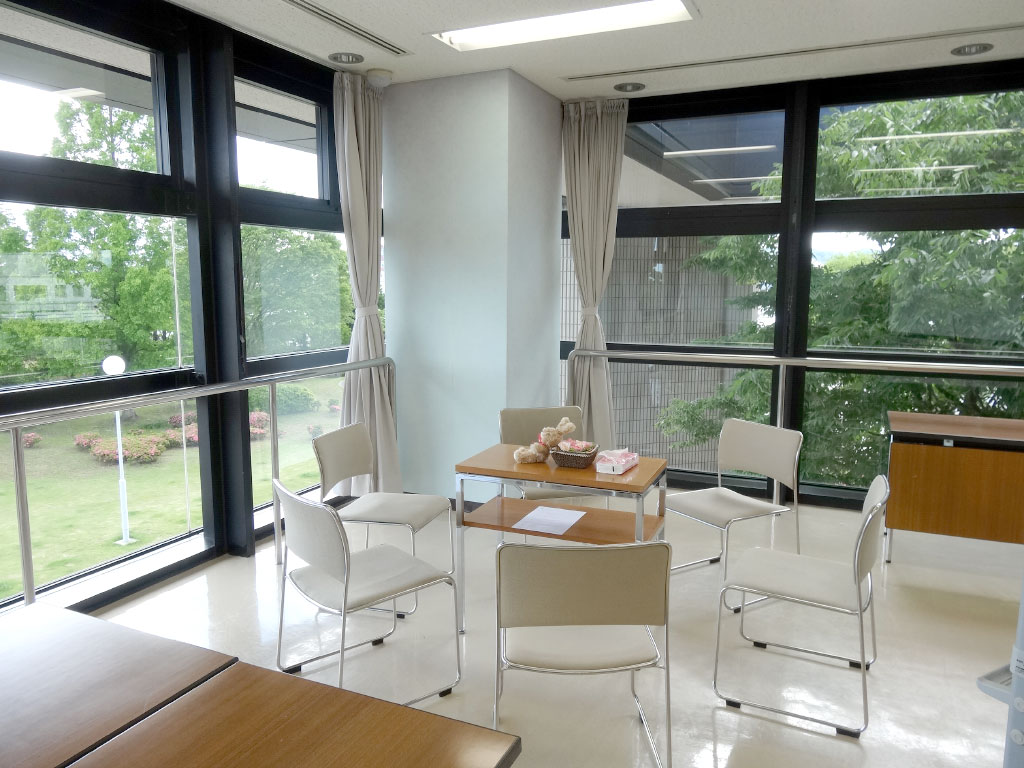Nurturing mental health growth with grief support: Grief Care group in Sendai Tohoku Interview: Social Inclusion
Posted on October 01, 2015
by Kris Kosaka
Social inclusion: Empowering the isolated in local communities
A priority of social care within any society is the struggle to include the isolated: the disenfranchised, the disabled, the mentally ill, the elderly or the homeless. In the Tohoku area, over four years since the triple disasters of March 11th, the struggles for those living on the edge of society continues. With so many people within society still needing assistance, from the demands of temporary housing to rebuilding, from compensation issues to the dearth of medical professionals, how are the affected areas ensuring that the voiceless are being heard?

“Mental health, the fulfillment of one’s mind, seems to be much more important than just curing the body. Both elements are quite important, but for me, I feel more fulfillment if my patient’s mental health is stable and resolute.” Dr. Akio Namekawa
One main area of concern is for those distanced from society because of mental health issues. Dr. Akio Namekawa, of Sendai Grief Care Association, has been supporting the emotional healing of patients since 2006, when he was inspired to recertify from internal medicine to psychiatrics. As Namekawa explains: “I used to be interested in terminal care and I joined a project that supported bereaved families in our hospital. In the project, at first we held a consultation for people who lost their family members at ICU. When I read a note written by a suicide survivor, it made me deeply involved in this issue.”
Although Namekawa first envisioned a place to support suicide survivors and their families, he soon realized grief care was an overlooked aspect of Japanese society, affecting anyone struggling with loss. “Our approach is based on the philosophy of grief support upheld by organizations such as “Ashinaga” (Daddy Long Legs) and The Dougy Center, a group based in Oregon that helps children deal with grief. As a doctor, I sometimes questioned if it was really me that healed or cured my patients’ disease— perhaps not. Perhaps it was actually the patients themselves that somehow could activate an innate capacity for recovery.”
“This realization came partly because of my profession as a doctor where I dealt with death every day, but everyone will die someday so it’s important for humans to face death. By talking about death, we think more about what it means to live.” Namekawa believes it is one of the main concerns in modern society, even before facing loss: to think more about what it means to live in order to find purpose and meaning. From 2006 -2009, Namekawa ran Grief Care as a support group for bereaved families of suicide in the Sendai area, expanding in 2009 to offer support not only for families dealing with suicide but also for those who died of other causes. After the 2011 disaster, due to the sudden demand of those struggling with loss, Namekawa combined all the participants into one group in order to best serve those in need with the available staff.

As Namekawa explains: “our main way of support is not so much to offer mental health counseling, but to provide a place where those who have lost loved ones, including those affected by March 11th, can go to talk about their experiences. These people may not have a chance to express their grief in their daily lives, so we try to provide a place. Some of the people who come have problems that on the surface don’t seem directly related to the disaster, but everyone who has experienced such a big disaster is bound to be affected by it. They may not have lost their homes or family members, but all have been affected psychologically.” Many families are just now coming to terms with the tragedy, but Namekawa celebrates the small victories he has observed: the bereaved mother who can now “cherish her memories” and speak about her deceased child or the creative efforts of a man who lost his wife to the disaster, who has started a “Death Cafe” to encourage others to gather and talk about life and death in a safe, open environment.
Namekawa believes this type of support for those mentally troubled is needed throughout Japanese society and not just in Tohoku. “Japan’s population is decreasing year by year and I think we need to reexamine the direction Japan is striving for. Rather than focusing on economic growth, I feel that from now on Japan really needs to work on mental health growth. Mental health growth includes grief care, of course, how to face death and loss. I hope to continue my work for the next twenty or thirty years.”

Despite the need, the group faces many challenges to continue: “We don’t have as many on staff as we did right after the quake, so that has also affected our activities. Some people have come to us for the first time partly because our group has become better known or it may be that it has taken three or four years to be able to talk about what happened to them. I hope we can keep the group going, but it’s hard to maintain because of finances and also to keep the motivation going. We don’t claim to have professional training in counseling, but we listen to them, and our staff genuinely cares. We don’t have the answers, but we can listen to them and help them find answers within themselves.”
Writer: Kris Kosaka
Reporter: Kris Kosaka and Yoshiko Ugawa (JNPOC)
Coordinator: Tohru Nishiguchi (JNPOC)
Sendai Grief Care is a grantee of the Japan Earthquake Local NPO Support Fund, with its donor the Takeda Pharmaceutical Company Limited.
Sendai Grief Care website (Japanese only)
Your comments and feedbacks: Contact Us
Recent Articles
- Shared solutions, stronger communities: Social economy and social innovation in Europe and Japan
- NPO support for disaster victims: Key discussion points
- Beyond support: Fostering genuine dialogues
- Reconsidering the significance of public comments
- Towards a society where children want to embrace life
- The Evolution of Philanthropy: Five approaches shaping contemporary practice